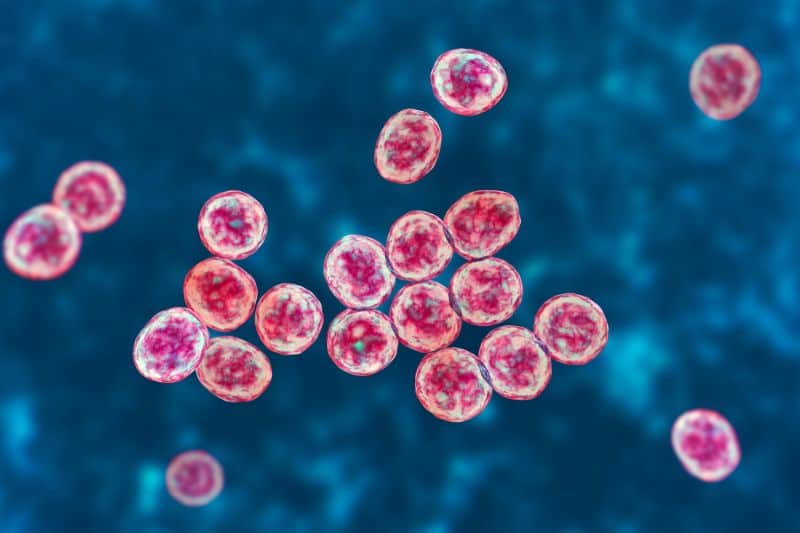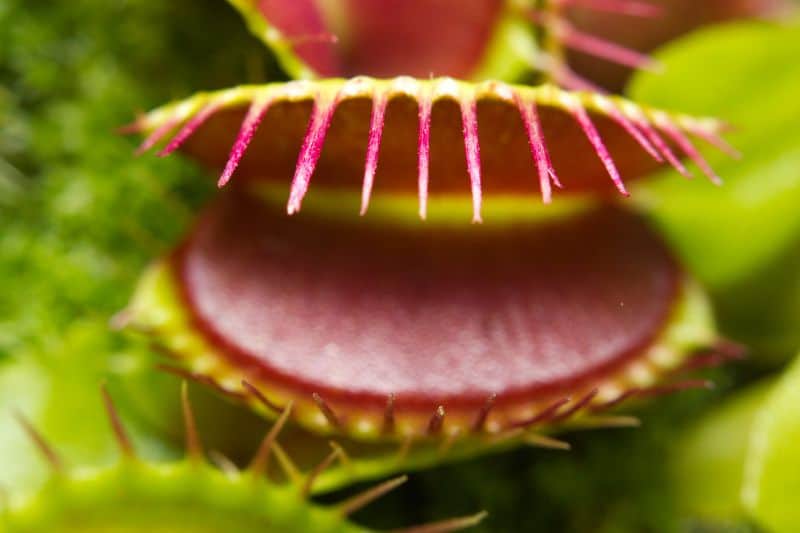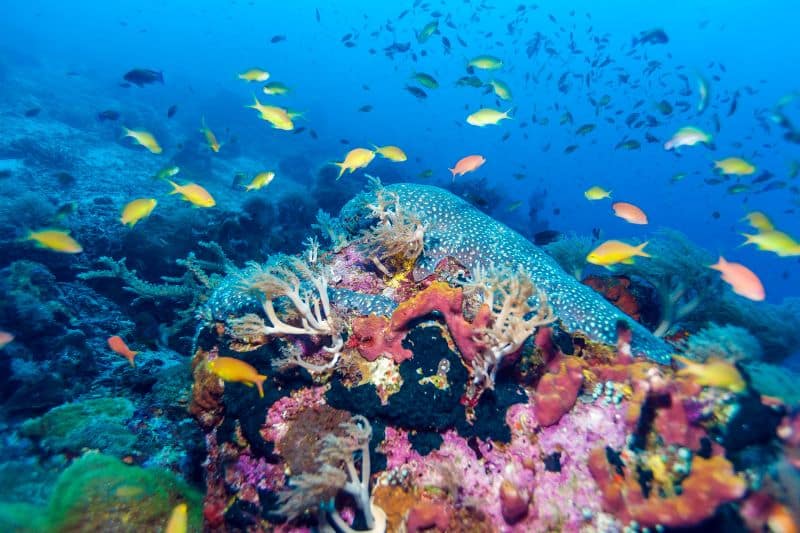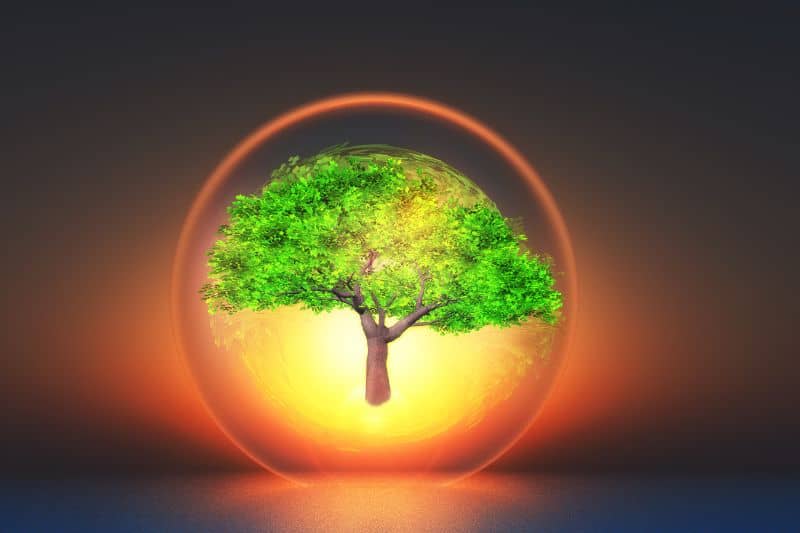Ecology is a branch of biology concerned with understanding how organisms relate with each other and their environment. It mainly deals with the relationships between the organisms. It can be towards each other, shared resources, or even the non-living aspects of the environment.
In understanding the given relationship, ecology encompasses aspects such as population growth, competition, symbiotic ecologic relationships (mutualism), trophic relations (energy transfer from one section of the food chain to the next), biodiversity, migration, and physical environment interactions.
Because ecology includes all the living organisms and their physical and chemical surroundings, it is divided into several categories which bring about different types of ecology as discussed below:
Types of Ecology
Some of the main types of ecology include;
1. Microbial Ecology

Microbial ecology looks at the smallest fundamental level of life: the cellular level. It involves mainly the first two life kingdoms;
- Kingdom Monera
- Kingdom Protista
Here, the connections are made between microbes and their relationships with each other and their environments.
Microbial ecology is particularly important in analyzing evolutionary connections and events leading to its existence (known as phylogeny). These connections help us understand the relationships shared among organisms.
This type of ecology is particularly interested in DNA and RNA structures as they carry most of the information passed along from organisms to their progeny, providing the data ecologists need.
2. Organism/Behavioural Ecology

This study of the organism at its fundamental levels can encompass microbial ecology.
In this type of ecology, the main goal is to understand the organism’s behaviors, adaptations for such behaviors, the reason for those behaviors as explained through the lens of evolution, and the way all these aspects mesh together.
In this case, the main concern is the individual organism and all its different nuances, especially in trying to understand how it all ties together to enhance the survival of the organism or any beneficial adaptations.
3. Population Ecology

Population ecology is the next rank on the ecological ladder. Population ecology focuses on the population, defined as a group of organisms of the same species living in the same area at the same time.
Here, attention is given to things such as population size, its density, the structure of the population, migration patterns, and the interaction between organisms of the same population.
This part of ecology tries to explain the different changes in each of the dynamics of the population, such as why numbers would increase and whether this affects any other aspects of the population, such as its density.
4. Community Ecology

Community ecology, as the name suggests, examines the community, which can be defined as all the populations that live in a given area. This includes all the different species populations.
The focus here is usually on the interactions between the different species, how their numbers and sizes all mesh together, and how change in one population changes the dynamic of the whole community.
The animal populations here are exposed to more complex interactions given their increased species numbers, which give rise to dynamics such as trophic relationships (who eats who), space dynamics, migration patterns, and the most important ecological driving force for inter/intra species interaction.
5. Ecosystem Ecology

Ecosystem ecology uniquely contributes to understanding ecology by adding abiotic (non-living) factors to the items analyzed alongside the biotic (living) factors involved. This interaction, therefore, involves all aspects of the environment and how they interact.
It includes understanding how things like climate and soil composition affect the behaviors and interactions of populations from different species. It also includes a wide range of factors to understand better the whole interaction between living things and their environments/habitats.
6. Global Ecology (Biosphere)

The global ecology is principally important in understanding all the ecosystems affecting the entire globe. This includes all the different biomes, considering aspects such as climate and other environmental geography.
It means that global ecology takes into account the whole world’s biosphere while considering all living organisms from the microscopic to higher lifeforms, the environments they live in, the interactions that they have with each other, the influences that their environments have on these interactions and vice versa, and finally, how they are all interconnected under the common ground that they all share a single planet – the Earth.
Importance of Ecology
The study of ecology is important in ensuring people understand the impact of their actions on the life of the planet as well as on each other. Here are the reasons why ecology is important:
1. It Helps in Environmental Conservation
Ecology allows us to understand the effects our actions have on our environment. Information on ecology helps guide conservation efforts by first showing the primary means by which the problems we experience within our environment begin, and by following this identification process, it shows us where our efforts would have the biggest effect.
Ecology also shows individuals the extent of the damage we cause to the environment and provides predictive models on how bad the damage can get. These indicators instill a sense of urgency among the population, pushing people to actively participate in conservation efforts and ensure the planet’s longevity.
2. Ensures Proper Resource Allocation
Ecology equally allows us to see the purpose of each organism in the web of connectivity that makes up the ecosystem. With this knowledge, we can ascertain which resources are essential for the survival of the different organisms. This is fundamental when assessing the needs of human beings who have the biggest effect on the ecosystem.
An example is the human dependency on fossil fuels, which has increased the carbon footprint in the ecosystem. Ecology allows humans to see these problems, which then calls for making informed decisions on adjusting our resource demands to ensure we do not burden the environment with unsustainable demands.
3. Enhances Energy Conservation

Energy conservation and ecology are connected in that the latter helps us to understand the demands different energy sources have on the environment. Consequently, it is good for deciding resources for use and how to convert them into energy efficiently.
Without a proper understanding of energy facts through ecology, humans can be wasteful in using allotted resources, such as the indiscriminate burning of fuels or the excessive cutting down of trees.
Staying informed about the ecological costs allows people to be more frugal with their energy demands and adopt practices that promote conservation, such as switching off lights during the day and investing in renewable energy.
4. Promotes Eco-Friendliness
All the information and research obtained from ecology ultimately promotes eco-friendliness. It makes people aware of their environment and encourages adopting a lifestyle that protects the ecology of life owing to their understanding of it.
This means that in the long-term, people tend to live less selfishly and make strides towards protecting the interests of all living things with the realization that survival and quality of life depend on environmental sustainability. Hence, it fosters a harmonious lifestyle and assures longevity for all organisms.
5. Aids in Disease and Pest Control
Vectors spread a great number of diseases. The study of ecology offers the world novel ways of understanding how pests and vectors behave, thereby equipping humans with knowledge and techniques to manage pests and diseases.
For example, malaria, one of the leading killer diseases, is spread by the female Anopheles mosquito. To control malaria, humans must first understand how the insect interacts with its environment in terms of competition, sex, and breeding preferences.
The same applies to other diseases and pests. Understanding the life cycles and preferred propagation methods of different organisms in the ecosystem has created impressive ways to devise control measures.
Examples of Ecology
Examples of ecology are aspects that seek to study how the various types of ecology come about. For instance, studying humans and their relationship with the environment gives us human ecology.
Alternatively, studying a food chain in a wetland area gives wetland ecology, while studying how termites or other small organisms interact with their habitat brings about niche construction ecology.
Here are two basic examples to elaborate examples of ecology in detail.
1. Human Ecology

This aspect of ecology looks at the relationship between humans and the ecosystem as a whole. It is centered on human beings, studying their behavior, and hypothesizes evolutionary reasons why we might have taken up some traits.
Emphasis is placed on this due to human beings’ impact on the environment. It also gives us knowledge about the shortcomings of the entire human population and how to better ourselves for our own sake and that of the environment.
2. Niche Construction
Niche construction is an example of ecology that studies how organisms can alter their environment for their benefit and the benefit of other living things. It is particularly interesting to ecologists who desire to understand how some organisms overcome the challenges presented to them.
A prime example is how termites are well organized and equipped to erect mounds that stand over 6 feet tall while at the same time protecting and feeding their entire population.
In going about their niche, ants also recycle nutrients for plants. This is a good example of ecology because it is all about evolution and several other aspects of population, community, and ecosystem ecology.






